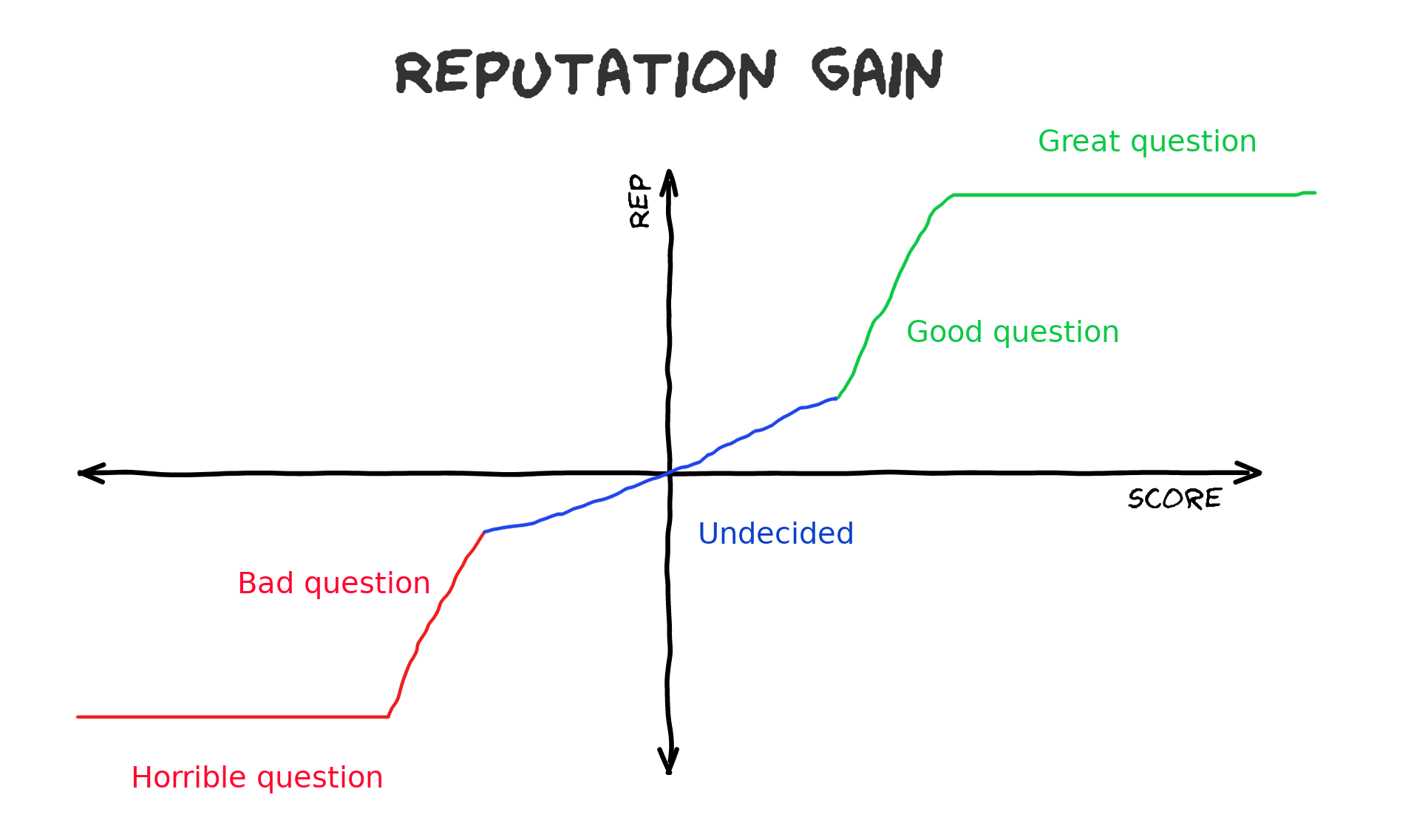TL;DR: The rep cap system isn't as effective or fair as it might be. I'm proposing one alternative for comment, and would welcome other suggestions too.
Disclaimers
I'm pretty sure the rep cap hits me harder than anyone else (pretty often over 1000 points in a day), so a change could easily be serving my own interests. If it makes anyone's mind easier, I'd be happy to come to some arrangement whereby all my posts were made CW before a recalculation, or something similar. The aim of this post isn't to increase my own rep, even though that might be the result.
I suspect that even with significant support for my proposal or any other suggestions, this post may end up as status-declined; I'm aware that Jeff is pretty sick about talking around the rep cap, and other Stack Exchange folks may feel similarly. Implementing a change in the system is non-trivial, and if the decision is that the time would be better spent on other things, that's fine.
I'm aware that rep cap affects a relatively small number of users - so spending a lot of effort even discussing it could be seen as a waste of time.
Aims of the rep cap
I've heard at least three purposes for the rep cap from Jeff, and of course others may have different views:
- To prevent a user with a single popular answer from gaining significant privileges without really understanding the community in enough depth to use those powers wisely
- To avoid a "rich get richer" sort of system
- To encourage heavily active users to step outside once in a while
Additionally, a goal within Stack Exchange is to keep good users engaged, encouraging them to keep contributing.
Evaluating the current rep cap
I would suggest that the current system doesn't really achieve any of these goals - or at least, not as well as other systems might.
A user with a very popular answer which continues to receive votes (as, for example, my answer on the Shanghai time zone change in 1927 does) can still gain many privileges from that one answer - it just takes them a bit longer to do so. While the answer is accumulating rep, the user doesn't have to be actively participating in (or learning about) the community at all.
On the other hand, a user who dives straight into the community and contributes left, right and centre will still be forced to wait for privileges (and general recognition via rep).
In terms of the "rich get richer" idea: I recently went on holiday, and hardly posted during that time. I very easily hit the rep cap every day, and suspect I could do so for some time. Arguably I'm an outlier, but if a system which is meant to prevent the rich from getting richer (with no/little effort) doesn't work for the "super-rich" then it's broken. Bear in mind that as I have written over 20,000 answers, I only need a single vote on each of 0.1% of my answers to hit the cap. That feels wrong to me - I'm still gaining reputation from answers written nearly four years ago.
As for suggesting to people that they spend time away from their community: it doesn't look like it's working. If anyone were really playing the rep game (and I'm not sure that many people are, out of those who regularly hit the cap) they would simply seek bounties and questions which they believed they could quickly get an accepted answer on. Personally I'm not sure to what extent I really believe this is an intention of the rep cap, rather than just something Jeff said on a podcast in an off-the-cuff manner, but that's a different question :)
Additionally, I have a sort of meta-concern: the rep cap was decided at 200 per day a very long time ago. Where did that value come from? Would the same exact value be picked today, and if so, why? It's incredibly rare that a somewhat arbitrary value picked at the start of a system's life turns out to be the best one when the system has been running for a long time.
Suggested alternative system
My suggested alternative is a combination of two mechanisms:
- For any given post, impose a cap of +100 rep from votes.
- Votes on posts over 6 months old have no impact on reputation.
Now both of these have interesting side-effects with regards to downvotes: if you have an answer with lots of upvotes, any downvotes become irrelevant - because you still end up with +100. For example, if you've got 11 upvotes you'd have to have 6 downvotes before they started to matter. And after 6 months, the downvotes wouldn't make any difference anyway.
Potentially those aspects need a bit more thought and discussion - but I think they're okay, actually.
Now to check over the stated aims of the rep cap:
Prevention of a user with one (or a few) good answers from getting privileges quickly: yup. For example, to get access to moderator tools, you'd have to have 100 good answers (modulo bounties/accept). That's a pretty high level of interaction.
Avoiding "rich get richer" syndrome: yup. Good answers will rapidly get to the cap, and you can't even rely on a huge number of old answers to give you "interest" due to the 6 month limit.
Encouraging you to step away from the community: nope, it doesn't do this. Ah well.
As a side effect: this encourages regular, continued participation. Writing a good post is always rewarded - just with a limit. Stop participating, and the rep you accrue will reduce and eventually stop completely.
So folks: what do you think, and do you have any better ideas?

